Spending less to stay healthy through portable healthcare delivery has become a common phenomenon people of Oyo state have continued to make reference to.
Living a healthy life, free of stress, depression, with no fear of spending beyond one’s earnings could be said to be a tall before the advent of Oyo State Health Insurance Agency (OYSHIA).
So, in a bid to provide sustainable, accessible and quality medical services with relatively small amount of money to assist the people of Oyo State, the state government came forward with the establishment of Oyo State Health Insurance Agency (OYSHIA).
The agency later got her mandate to operate after the state’s assembly passed its bill into law over a year ago. Since then, it has been growing in leaps and bound in putting smile on the faces of the vulnerable ones, pregnant women and children through efficient healthcare and affordable health care services.
OYSHIA, like similar other health insurance agencies, provides indigenes and non-indigenes of the state a form of health insurance scheme (HIS) geared towards financing and managing healthcare based on fund pooling.
The agency pools the health risks of the people on one hand, and the contributions of individuals, households, enterprises, and the government on the other. Thus, protecting the populace against financial constraint and health burden, making possible a relatively fair method of financing health care.
OYSHIA was basically established for spreading risk, pulling of funds and financial protection of the poor who do not have enough money to spend on medical bills, thereby reducing poverty index rate in Oyo state.
It is in the bid to get the people of the state and Nigeria as a whole acquainted with purposes to which the agency is to serve in the state, that a 2-day media dialogue workshop was organized by the Oyo State Ministry of Information, culture and tourism in collaboration with Oyo State Health Insurance Agency OYSHIA with the support of United Nation Children Emergency Funds UNICEF.
The workshop was meant to enlighten media practitioners about the nitty-gritty of the scheme and encourage media advocacy on increasing access and uptake of healthcare services for children and vulnerable populations through health insurance scheme using the State’s agency as a reference point.
According to him, Oyo State’s Health Insurance Agency is rated the best among her counterparts in term of policy, structure and responsibilities in ensuring portable healthcare is made accessible to the indigenes through all the Primary Healthcare Centers, Government Hospitals, Private hospitals among others across the 33 local government areas in the state with very little amount.
“As directed by World Health Organization WHO that an individual should not spend more than 30% of his or her income on medical treatment, that is why OYSHIA has decided to bear the burden in bringing down healthcare delivery to the barest amount, less than #22 per day”, Akande said.
The health insurance scheme is categorized into three different plans which are; Individual plan, Family plan and student plan. The individual plan cost #8,000 per year, while family plan goes for #28,000 per year, which is for the family of 4; that is, the father, mother, and their 2 children, and the third plan which is student plan goes for #2,800 for tertiary institution students’ subscribers.
Also during the workshop, Akande led participating media practitioners on a field trip to some PHCs in two local government areas in Oyo to affirm the dexterity of the agency’s personnel and high level of participation on the part of the people of the state in the Health Insurance Scheme.
Agbongbon Primary Healthcare Center, Kudeti area in Ibadan North-East, was the first port of call, where over 250 enrollees were already covered by the scheme, those who were confirmed to be enjoying portable healthcare delivery without much burden.
“Our aim is to reposition our PHCs per local governments so that we push it to a certain level of standard, so that we can have even elites to come and use the place.
“To work this out, we are working towards having a consulting room where patients will be attended to, create a pharmacy unit where drugs will be kept, we want to also ensure there is constant supply of electricity through solar inverters and make sure we recruit more doctors and supply drugs in each of the facilities under our agencies”, Akande said.
Lending weight to the submissions of the two medical experts, a pregnant woman, who is also an enrollee under the scheme, Oguntoyinbo Oluwadamilola told newsmen that she’s being under the scheme for four months, when she came to the PHC newly.
She added that she never regretted partaking in the scheme, as all her expenses have been taken care of, by the scheme.
Also, an expectant mother, who came for ante-natal checkup, and had been duly registered under the scheme, Mobolaji Radeke, said awareness about the health insurance scheme had not been strong enough, as many people in her community were yet to know about it.
Dr. Babatunde Agbaje, son of the late A.S Agbaje, is the Director of Alafia Hospital. Speaking with newsmen, he affirmed that the facility already has over One thousand (1,000) enrollees under OYSHIA.
“We the management of Alafia Hospital are very happy working with OYSHIA, because since we joined the scheme, our hospital has being a reference point, in fact, people who are not under the scheme do come here, and when they come here, what we do is as expected because a good facility shouldn’t turn you away, what we do is call the HMOs and ask whether to go ahead with the person’s treatment, and if the permission is granted, we go on.”
Agbaje stressed that due to the efficiency and comfort derived from the scheme in Oyo state, most of the fee-paying patients in the facility are already subscribing to it, since they know it is cheaper, and at the same time accessible.
She however revealed that Nigeria is rated 3rd with 9% of global newborn death which total 1 million per year, declaring, “To set the record right, Oyo state holds 3rd position in term of number and 9th in rating.”
Speaking further, she revealed that Oyo state is made up of 33 local government areas, 351 wards, 538 PHCs out of which only 270 are functional, 109 Health Clinics, 45 health posts, 22 doctors, 248 Nurses and midwives, 166 Community Health Officers, 922 Community Health Extension Workers and 747 Health Assistants.
She recommended that government should swing into action to revamp the abandoned hospitals in all the remote areas in the state, as well as, provide enough personnel in the PHCs with no enough personnel.
You may be interested

Arsenal Equal Chelsea’s London Derby Feat After 5-1 Win Vs Palace
Webby - December 21, 2024Arsenal equaled Chelsea’s London derby achievement following their 5-1 win against Crystal Palace in Saturday’s Premier League game at Selhurst…

Haaland Backs Guardiola To Turn Man City’s Poor Form Around
Webby - December 21, 2024Erling Haaland had said he and his Manchester City teammates are still backing manager Pep Guardiola to turn the team’s…

PSG To Reignite Interest In Osimhen
Webby - December 21, 2024Paris Saint-Germain have contacted Napoli to discuss signing Victor Osimhen in January, according to reports in France.It is reported that…





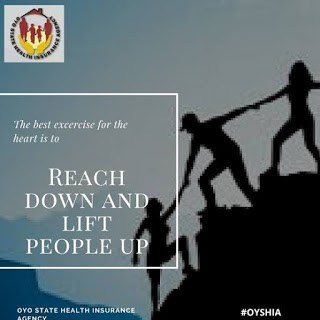
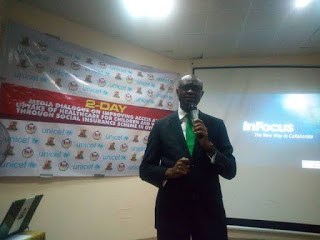

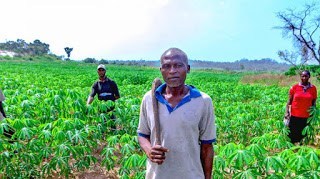



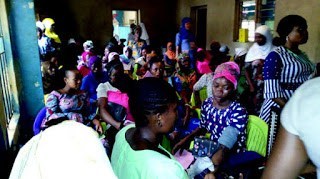
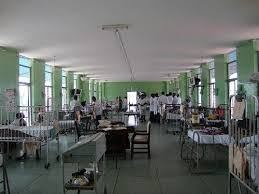

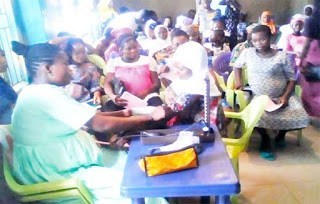
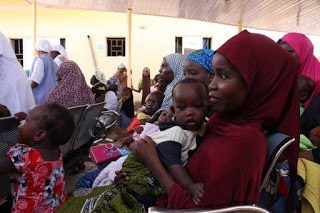
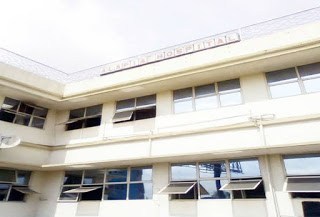
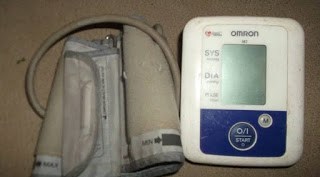
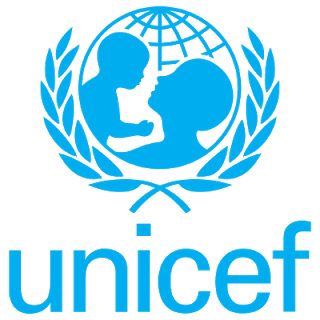
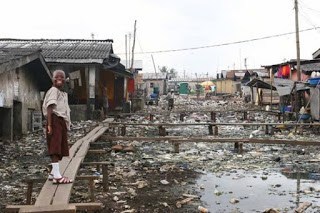
















![American Pastor, David Wilson Seen Eating The Box Of Woman Who Isn’t His Wife [Video]](https://onlinenigeria.com/wp-content/uploads/2019/10/american-pastor-david-wilson-seen-eating-the-box-of-woman-who-isnt-his-wife-video-150x150.jpg)








